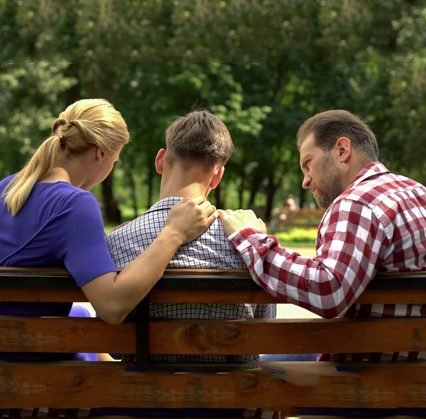
The First Mistake
When the patient fails to fulfill the given responsibilities, the family gets angry. The question is, does the patient’s illness allow him to carry this burden? Certainly not. It is unrealistic to expect the patient to be given responsibilities and to fulfill them until he or she is free from drug abuse.

The Second Mistake
From the apparent decrease in the patient’s amount of intoxication, it is understood that the patient has given up intoxication. Don’t understand often a reduction in irritability in a patient’s behavior leads families to believe that he or she has improved considerably. This period of declining drug use eventually turns into serious problems. The fact is that overcoming addiction is not easy. If that were possible, it would have happened by now.

The Third Mistake
Accepting responsibility for the patient’s mistakes and apologizing to others. Like the patient, the family, instead of acknowledging the reality, justifies the patient’s mistakes under the influence of self-deception. This is a supportive approach. Which helps the patient to continue intoxication.

The Fourth Mistake
Arguing with the patient while intoxicated. It is useless to express anger in front of such a person. Whose brain is badly affected by powerful chemicals? No matter how solid the family’s arguments, the patient never listens, can only get angry and use more drugs.

The Fifth Mistake
Family consultation with the general public who have no idea about the disease. Close friends and acquaintances know less about this disease than the patient’s family. When their advice is not followed, the relationship cools down and the loneliness of the family increases.

The Sixth Mistake
Families begin to doubt their mental health. Because families are less interested in getting real information. Therefore, the patient’s criticism is taken to heart. It is a natural reaction of the family to the desires they associate with the patient. Even if the patient gives up drugs, the family will not be able to recover. They need help from a psychologist to get rid of this stress.

The Seventh Mistake
If a patient goes to jail for breaking the law, then the family should rush to rescue him, then why should he realize his mistake? As long as the root cause of the problem is not addressed, the problem will remain. These attempts by the family to protect the patient from harm are simply ignorant.

The Eighth Mistake
Trying to solve problems without seeking regular professional help. As long as families do not receive real guidance, their loneliness is not surprising. It is pointless to express this problem in whispers from close friends. In these cases, the problems for the family continue to grow. The family considers the incidents and accidents that befell the patient as a punishment from God for themselves. In fact, it is a natural reaction to drug addiction. These problems are seen in every home. Where there is a problem of drug use.

